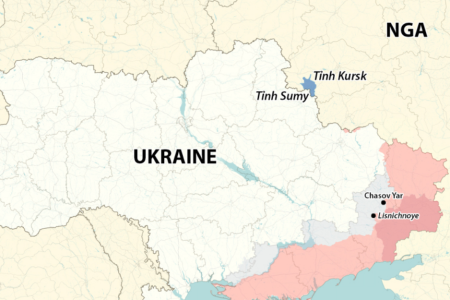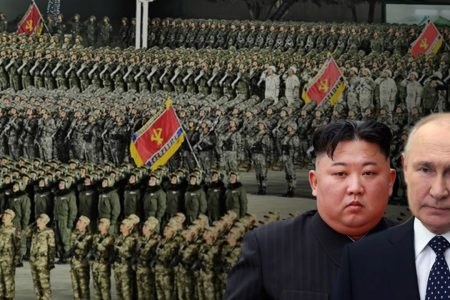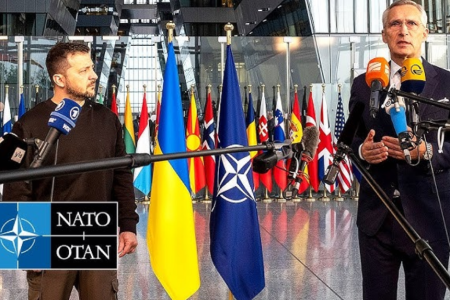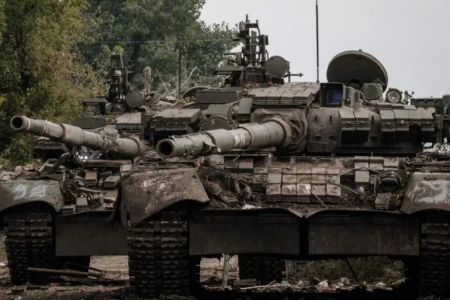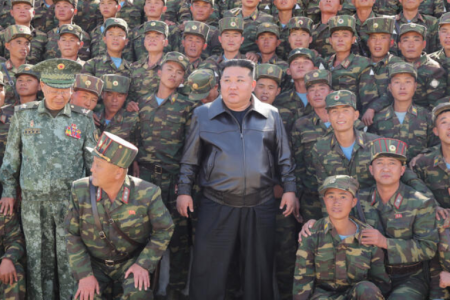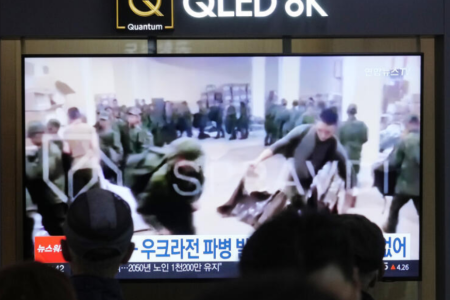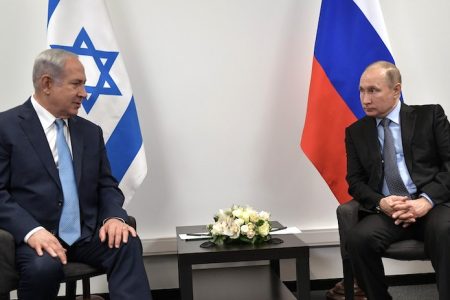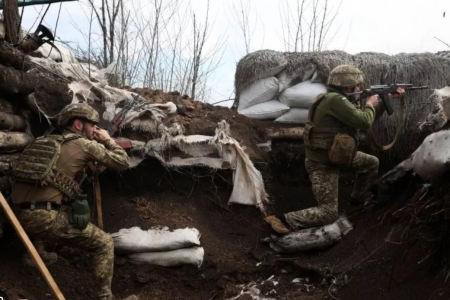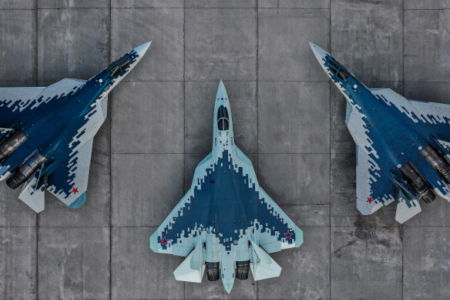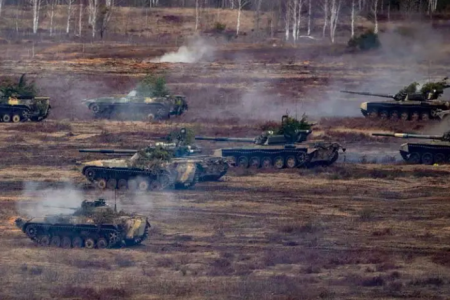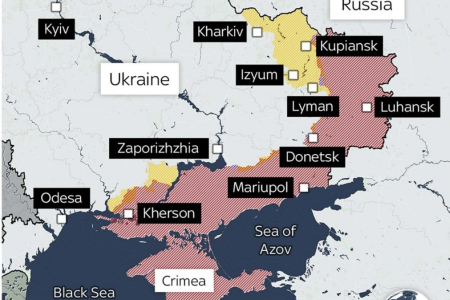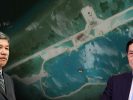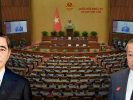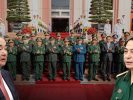On March 8, 2021, the South China Morning Post newspaper had an article “China’s military must spend more to meet US’s war threat,” roughly translated as “China needs to increase defense spending to prepare for the risk of war with the US.”
The article quoted China’s Central Military Commission Vice President, Senior Lieutenant General Hua Qiang, as saying that China needs to get ready for the “Thucydides Trap.”
The term “Thucydides Trap” is widely used to refer to possible armed conflicts between China and the US and has been popularized by American political scientist Graham T. Allison based on the words of the Greek historian Thucydides.
It means that war is inevitable when an emerging center of power threatens to replace the old one.
The story of a war between the US and China has been mentioned by many strategists in recent years. At the Warsaw Security Forum in Poland in October 2018, former US military commander in Europe, Lieutenant General Ben Hodges, warned of the possibility of a war between the US and China within the next 15 years.
General Hodges mentioned that Chinese warships approached the US warship, Decatur, at the end of September 2018, when the US conducted a patrol operation in a program of freedom of navigation in the South China Sea (Vietnam calls it the East Sea).
Political analyst, Ph.D. Ha, Hoang Hop said:
“The prediction is quite true because the US is a country with military potential and is leading the world.
Now that China has more guns, the more money it wants to divide power with the US. Researchers, policymakers, and even civilians all analyze and predict that this will inevitably lead to war.
Previously there was a scholar named Thucydides who said that in all power disputes the odds of going to war are 9 out of 10.
China is now very strong in its economic and military potential to confront the US directly.
This view is extremely dangerous because it can lead to a war at any moment. The strategists have been predicting this two years ago.
It was almost inevitable.”

In his first speech on US foreign policy on March 3, Secretary of State Antony Blinken stated that the US was ready to confront China wherever it was needed and called for relations with Beijing the greatest geopolitical challenge of this century.
China is the only opponent capable of combining economic, diplomatic, military, and technological might to create a long-term challenge to a stable and open international system, Mr. Blinken said.
The US Secretary of State noted that the US-China relationship “will be competitive when necessary, cooperate when possible and rival when required.”
Will China beat Vietnam?
According to the South China Morning Post, in order to prepare for the risk of war with the US, Lieutenant General Hua Qiang proposed to increase the budget for the military. China’s Ministry of Defense announced plans to increase the defense budget to more than $208 billion in 2021, an increase of nearly 7% compared to 2020.
If there was a war, would Vietnam be in China’s sights?
In an article from 2019, journalist David Hutt has relied on experts’ analysis to conclude that, if there is a war in the South China Sea, Vietnam will be the first target that China attacks before having a bigger war with the US in this waters.
Derek Grossman, a defense analyst at research organization RAND Corporation, in an article in its journal in May 2019 also made the same argument that, if China launched an attack on military work in the South China Sea, the opponent chosen will most likely be Vietnam.

Dr. Ha Hoang Hop commented on this:
“If we fight, China will attack Taiwan first. They would land and capture Taiwan as reunited by force.
That is the position and policy of China that they have spoken out many times.
At the same time, either before, or after, China will fight Vietnam in the South China Sea because Vietnam is the most resilient to China among the claimant states in the South China Sea.
It is in line with the analyzes and predictions of strategy scholars from both the West, elsewhere, and even China.
If China attack Vietnam, the battlefield would be the Truong Sa (Spratlys) but not on the mainland.
Vietnam is not strong in terms of weapon capacity or force with China, but Vietnam is very strong in defense and self-defense.
If China attacks Vietnam, Vietnam will fight back and will have allies. Vietnam already exists, but there is no need to declare anything.”
Mr. Hop added that, in the past, the US recognized Taiwan and China as a country, but in reality, the two countries must be united peacefully, not by force.
When war happens, the Americans will help Taiwan fight against China, because there is a very important 18-point agreement between the US and Taiwan.
In the event that Taiwan is invaded, the US can help Taiwan directly fight the invaders.
What about Vietnam? Mr. Hop commented:
“Vietnam’s strategy is not to be surprised; not passive; beat the enemy, they must fight from early and far.
Starting early means forecasting. Remote hit is a must-have external relation. The biggest feature of foreign affairs is intelligence, research, and cooperation with countries near the target. Although Vietnam did not say it, everyone understood that Vietnam had enough.”
In early 2021, Mr. Derek Grossman published an essay in The Diplomat, referring to the bilateral relationship between the US and Vietnam, including: “While the Joe Biden administration is likely to continue the positive momentum in the bilateral relationship, it remains unclear what specific Hanoi seeks from Washington to help them deal with Beijing effectively.”
According to Mr. Grossman, Vietnam is trying to balance peace with Beijing and repel China’s illegal expansion in the South China Sea. Therefore, Vietnam avoids announcing specific expectations from the bilateral relationship with the US.
Singapore Prime Minister Lee Hsien Loong told the BBC that a clash between the US and China is more likely to happen than it was five years ago.
However, he maintains that the chances of military conflict are “not high.”
If both countries continue to take a tough stance because of domestic considerations, they could easily fall into a stalemate, Lee said.
The Biden administration will hold its first high-level talks with Chinese officials in Alaska next week.
Lee is quite reluctant to give advice to China but notes that its political lines have caused tensions with countries large and small.
“There is considerable uncertainty [and] concern over the path China is taking and whether this is good for them,” he told BBC World News’s Talking Business Asia show.
“I don’t think it is in China’s interest.”
The Singapore leader’s view of the US-China relationship is often of interest, as this tiny island nation plays an oversized role in economic and political influence in the region.
The US is Singapore’s largest key security partner and investor, far ahead of any other nation’s contribution.
Meanwhile, China is Singapore’s largest export market and like most Asian countries, Singapore’s economy benefits from China’s rise.
US-China trade war
The fierce trade war between the two superpowers over the past two years has threatened this fragile balance.
The war begins with former US President Donald Trump, but there is no indication that newly-elected President Joe Biden will take a softer approach to China.
PM Lee said he hopes the new US leader will be someone “who believes in multilateralism and international trade.”
He also spoke of the struggle for global dominance between the two countries.
“America is still number one but number two [China] is not left too far behind,” he said. “It is difficult for the US to accept.”
According to some estimates, the Chinese economy is expected to overtake the US to become the world’s largest economy by 2028, five years earlier than the previous forecast.
China’s formidable economic rise in recent years has been accompanied by increasing domestic and foreign aggression under leader Xi Jinping.
This has caused many Western countries to condemn China’s actions and disturbed some of its partners in Asia.
However, Lee said Singapore cannot afford to choose either side.
“It is a problem for many countries, which is why we all hope and encourage the two great powers to think carefully before deciding that there must be restraint, if not try to prevent the other,” he said.
“What we want to see is China becoming a country where their prosperity, development and growing strength are welcomed by other countries around the world, which see this as an opportunity for prosper mutual growth and live together in a world of stability.”
The deterioration in US-China relations comes amid pandemics and a setback in globalization, an economic trend that has made Singapore one of Asia’s richest countries.
PP Lee believes that globalization still has a lot of potentials, especially with the need to cooperate on vaccines.
“You cannot avoid cooperating with another country or you will be back as before… it is poverty, hopelessness, even instability, and conflict,” he said.
Thoibao.de (Translated)
Source: https://thoibao4000.de/blog/2021/03/13/neu-co-chien-tranh-voi-trung-quoc-se-danh-viet-nam/



